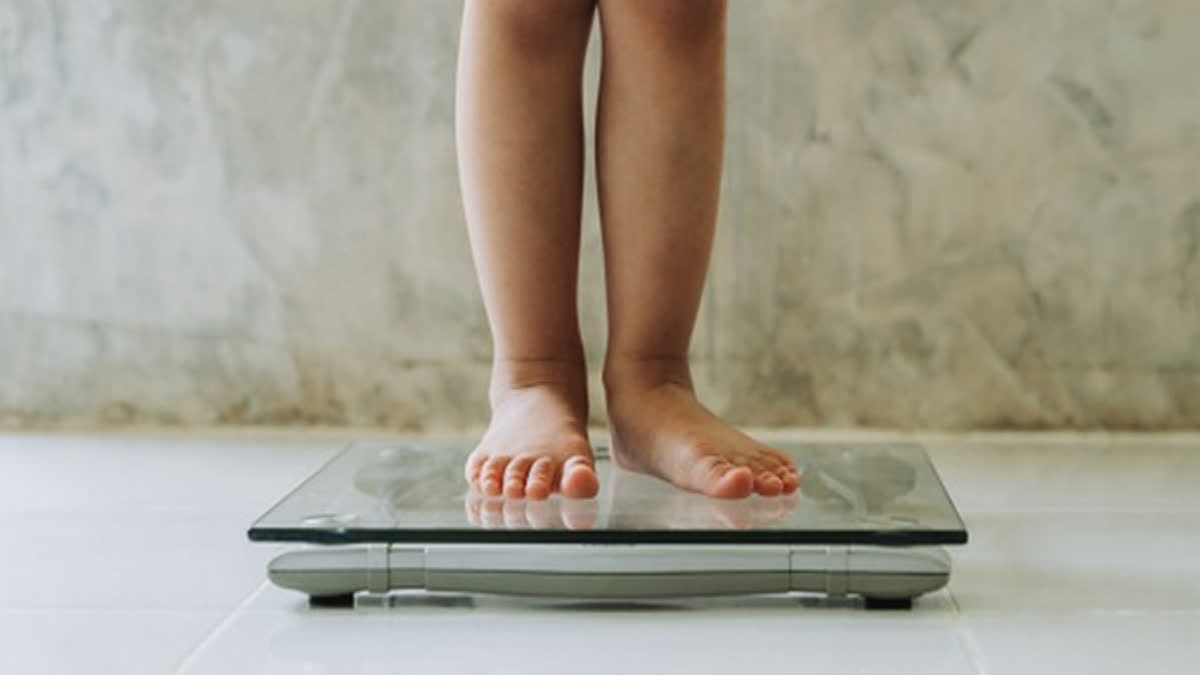Hyderabad: Obesity has emerged as one of the prime causes of health-related worries for children across the world. The symptom is very much prevalent in India. Dr. V.S.V. Prasad, a pediatric specialist from Telangana, explained the causes of the problem of obesity, its consequences, and the precautions taken to improve the condition.
So, what causes obesity in children? Following the Covid pandemic, childhood obesity is becoming a bigger issue. If 10% of kids showed such symptoms before the arrival of Covid-19, the number has now risen to 20-30 per cent. The condition is more common in children from middle-class and upper-class backgrounds living in large cities and districts, including metropolises like Hyderabad. The main reason for this health issue is the amount of time spent on computers, laptops, and phones. This is now even more of an issue in light of the post-Covid shutdown situation. The issue is exacerbated by eating unhealthy foods and junk foods at that time.
What effect does food have? Consuming sweets and high-fat and high-salt snacks aggravates the issue. This issue was previously observed in school-age youngsters. These days, individuals older than 10 years old and younger than three exhibit it. In addition to shifting lifestyles and eating habits, there has been a significant decline in physical activity and gaming in educational institutions.
What should be the eating habits of children? Children's eating habits develop during the critical first five to six years of life. At that age, any eating behaviour becomes permanent. They should take fruits, vegetables, and fibre-rich foods. Their preference for meals composed primarily of tiny grains should grow. That kind of cuisine can make them feel full even if they consume less amount of food. In addition, dry fruits like dates and jaggery ought to be offered as a substitute for sweets. Their high content of protein, vitamins, minerals, and fibre helps to maintain an active digestive tract. Constipation becomes less of an issue as a result, and body weight is managed.
Other problems associated with obesity and its impact- If a child's weight is not controlled in childhood, it can lead to many negative consequences by the age of 14-20 years. Mainly stress on joints, high blood pressure (BP), and risk of diabetes increases. If you have both blood pressure and diabetes, problems like pressure on the heart, blood vessel problems, and heart attacks will increase. Uncontrolled food intake leads to increased fat content and reduced insulin production, leading to metabolic syndrome. On the other hand, there is psychological pressure on children with obesity problems. It increases with the way fellow students treat them.
The danger of high-calorie food- Foods full of calories like chips, French fries, burgers, pizza, junk, packaged and fast foods are another cause of obesity problem in children. Even if you are correct that you are taking it in small quantities, its high-calorie content adds to the problem. For example, one slice of cake has 500 to 700 calories of carbohydrates. Fats from butter and sugar cream in it are added. If all of them go into the body, glucose increases. Excess glucose turns into fat and accumulates around the waist.
Are games the most essential? A decade ago, obesity was a common problem among children in developed countries. It is decreasing as the respective countries wake up and take appropriate measures. Currently, the problem is increasing in developing countries like India. Providing healthy food, creating awareness about physical activity, and encouraging people to play for at least 45 minutes to an hour a day can gradually get rid of the problem.
A Karolinska University study from Sweden revealed that obesity in children can be identified and treated early. They studied the treatment of obese children aged 4-6 years in Sweden. The best results were obtained mainly in children, who received parental support in treatment. "After they reduced obesity, their health status improved significantly,' said Noika, associate professor of pediatric science at the University's Department of Clinical Science.
During the study, many parents stated that children want their favourite food more and they cannot undeniably control their preferences. Such children should be made aware of the nutrients and health benefits of food provided at home. They should be made partners in cooking, she explained
By 2030, one in ten persons will suffer from obesity: Obesity among children in the country is on the rise. It is estimated that by 2030, one in ten children will deal with this problem in India. According to the National Family Health Survey 2019-21, the prevalence of obesity among children under five years is 3.4. In 2015-16, it was only 2.1 per cent. At present, 1.44 crore children under the age of five are suffering from obesity. India is second only to China in this regard.
Read More



